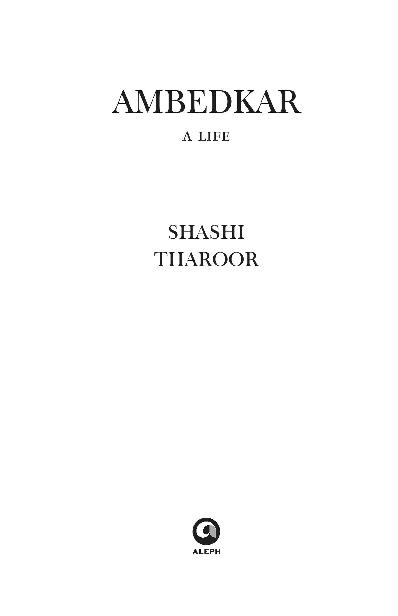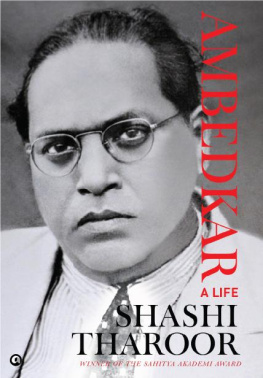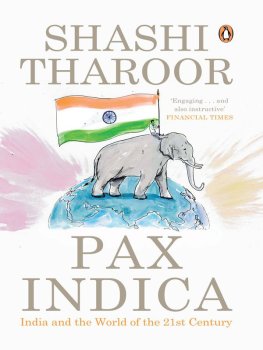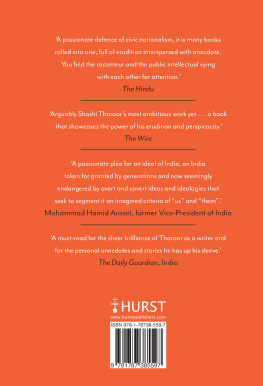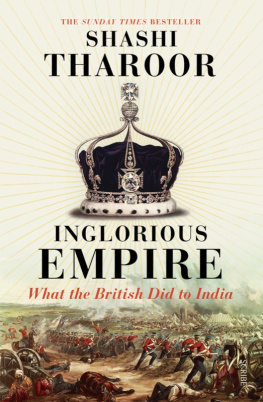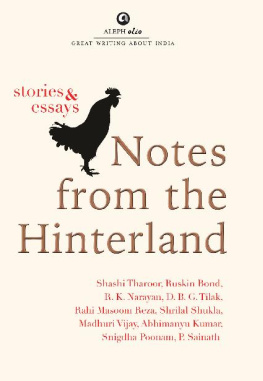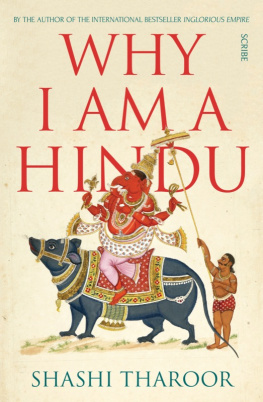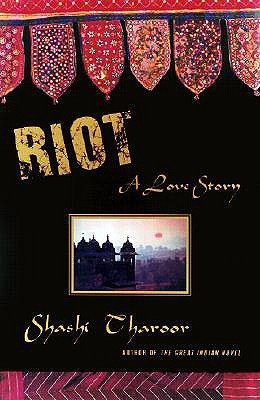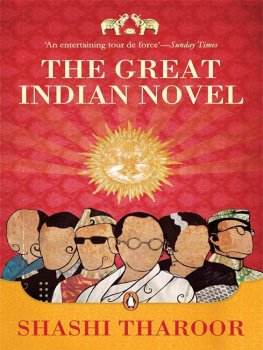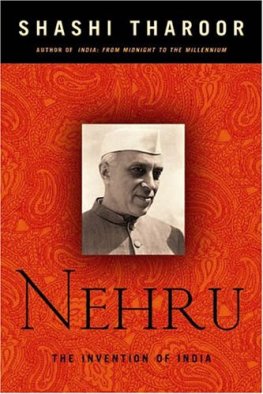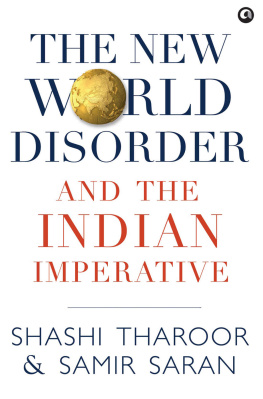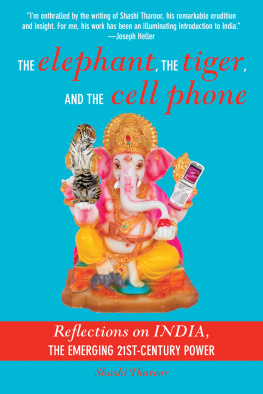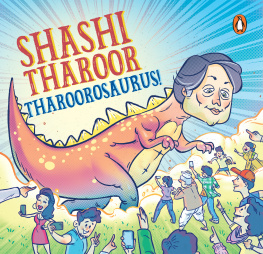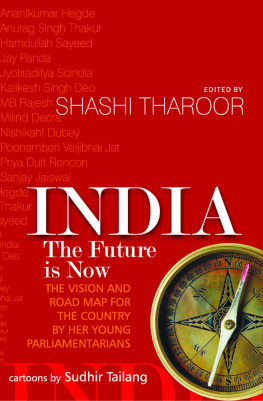AMBEDKAR
ALSO BY SHASHI THAROOR
NON-FICTION
Pride, Prejudice, and Punditry: The Essential Shashi Tharoor
The Battle of Belonging: On Nationalism, Patriotism, and What It Means to Be Indian
Tharoorosaurus
The New World Disorder and the Indian Imperative (with Samir Saran)
The Hindu Way: An Introduction to Hinduism
The Paradoxical Prime Minister: Narendra Modi and His India
Why I Am a Hindu
An Era of Darkness: The British Empire in India
India Shastra: Reflections on the Nation in Our Time
India: The Future Is Now (ed.)
Pax Indica: India and the World of the 21st Century
Shadows Across the Playing Field: 60 Years of India-Pakistan Cricket
(with Shahryar Khan)
India (with Ferrante Ferranti)
The Elephant, the Tiger, and the Cell Phone:
Reflections on India in the 21st Century
Bookless in Baghdad
Nehru: The Invention of India
Kerala: Gods Own Country (with M. F. Husain)
India: From Midnight to the Millennium and Beyond
Reasons of State
FICTION
Riot
The Five Dollar Smile and Other Stories
Show Business
The Great Indian Novel
ALEPH BOOK COMPANY
An independent publishing firm
promoted by Rupa Publications India
First published in India in 2022
by Aleph Book Company
7/16 Ansari Road, Daryaganj
New Delhi 110 002
Copyright Shashi Tharoor 2022
All rights reserved.
The author has asserted his moral rights.
The views and opinions expressed in this book are those of the author and the facts are as reported by him, which have been verified to the extent possible, and the publisher is not in any way liable for the same. The publisher has used its best endeavours to ensure that URLs for external websites referred to in this book are correct and active at the time of going to press. However, the publisher has no responsibility for the websites and can make no guarantee that a site will remain live or that the content is or will remain appropriate.
No part of this publication may be reproduced, transmitted, or stored in a retrieval system, in any form or by any means, without permission in writing from Aleph Book Company.
ISBN: 978-93-91047-50-4
1 3 5 7 9 10 8 6 4 2
This book is sold subject to the condition that it shall not, by way of trade or otherwise, be lent, resold, hired out, or otherwise circulated without the publishers prior consent in any form of binding or cover other than that in which it is published.
To the people of India
to whom Ambedkar gave so much
that we are yet to fully appreciate
We possess the wealth of words. With weapons of words we will fight; words are the breath of our life, we will distribute the wealth of words among the people.
Sant Tukaram, 16081650
Contents
A Note from the Author
Three caveats.
The biography of a man who is principally noted for his words rather than his actions inevitably suffers from a deficiency of incidents and a surfeit of ideas. There is undoubtedly drama and suffering in Ambedkars life, but far more consequential is the weight of his writings, speeches, and interventions in the public debates of his time. In opting to reflect this reality, the biographer is obliged to acknowledge that this sometimes makes for a curiously bloodless tale. That the son of an untouchable subedar, scrabbling in the dust in the cantonment town of Mhow, rose to earn two prestigious doctorates and, by sheer dint of his intellectual worth, courage of conviction, and brilliance of articulation became one of the foremost figures among a generation of giants is drama enough for this writer. But the reader is fairly warned: this is the story of the rise of a man of ideas, illustrated with extensive quotations from his writings and speeches, and not of a man of physical adventure.
The second caveat relates to the use of some descriptions in the narrative. In the early chapters, and elsewhere in the book, the word untouchable is freely used, even though it is a pejorative term that has long since fallen into discredit. The problem is that at the time being referred to, the word Dalit, the currently accepted term for the community in question, was not generally in use, and even Dr Ambedkar himself often used the term untouchables. The communityalso referred to as the Depressed Classesbecame known after 1935 as the Scheduled Castes, and that term slips into the discourse as the narrative moves on. But the reader is asked in advance to excuse the author for reflecting the language of the times. No offence is intended.
And, finally, a third, inescapable, caveat: in my extensive reading of Dalit writings and commentary on the life and teachings of Ambedkar, I have become acutely conscious of the fact that some will object to this book on the basic ground that I am not a Dalit. I am entirely aware that the analysis of an objective author, however well-read or well-informed, cannot match the insights gleaned from the personal experience of discrimination and marginalization. I will not protest, as I once did, that I have grown up oblivious of caste, because I have since been schooled to accept that even caste-blindness is a reflection of privilege, and that no Dalit can ever escape being conscious of her caste, as I was brought up to be unaware initially of my own. In the end I can only say that I have approached the subject of this short biography with respect for the man, admiration for his accomplishments, knowledge of the history, and awareness of the context. It is up to the reader to judge whether the result of my efforts is good enough.
BOOK ONE
LIFE
ONE
Laying the Foundations
18911923
The nine-year-old boy and his two companions, a brother and a cousin, were excited. The boys father, who was working in another town, had invited them to spend their summer vacation with him in Koregaon. The boys dressed in their best finery for the occasion, donning tailored jackets and brocade caps. They were thrilled to be travelling by train for the first time.
They had written to their father with details of their trains arrival at 5 p.m., but the message never reached him and they found no one waiting for them when they arrived. After waiting for a while, they asked people on the platform what they could do. Questions arose: who were these boys? They soon revealed they were Mahars, members of an untouchable community. Suddenly, no one was willing to be helpful. After an hour and a half of waiting helplessly, they tried to engage a cart to transport them to their fathers place, several hours away by road from the train station. There were several carts sitting idle but none available to them to rent. Finally one cart was found, but the cartman was unwilling to drive the cart for fear of being polluted.
In the end the boys had to agree to pay double the fare and drive the cart themselves, with the driver walking alongside. Many petty indignities were inflicted upon them on the long journey: people along the route refused to serve them water because of their caste, they could not let their guard down for fear that the cartman might do them harm, and they stayed anxiously awake at an overnight rest stop, segregated from others, terrified of what terrors might be lurking in the dark. The boys excitement at their holiday trip had given way to an overwhelming sense of humiliation at their inhumane treatment for no reason but their caste identity. The nine-year-old boy on whom this incident had a profound influence was called Bhim.
